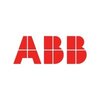Filter interviews by
Honeywell Automation System Engineer II Interview Questions and Answers
Honeywell Automation System Engineer II Interview Experiences
1 interview found
(1 Question)
- Q1. How is experience
(2 Questions)
- Q1. What is PID, how is works
- Ans.
PID stands for Proportional-Integral-Derivative. It is a control algorithm used in systems to maintain a desired output.
PID is a feedback control mechanism that continuously calculates an error value based on the difference between a desired setpoint and the actual output of a system.
The Proportional term adjusts the output proportionally to the error value.
The Integral term sums up the error over time to eliminate ste...
- Q2. Give me example it closed loop and explain
- Ans.
A closed loop is a control system where the output is fed back to the input for continuous monitoring and adjustment.
In a closed loop system, the output is compared to a desired value and adjustments are made to bring the output closer to the desired value.
Examples of closed loop systems include thermostat-controlled heating systems and cruise control in cars.
Closed loop systems are used to maintain stability, accuracy...
(1 Question)
- Q1. What is your Postion in next 5years
Skills evaluated in this interview
Top trending discussions






Interview questions from similar companies

System Administrator Interview Questions & Answers
Schneider Electricposted on 15 Sep 2024
(2 Questions)
- Q1. Do you have scripting knowledge
- Ans.
Yes, I have scripting knowledge in languages like Bash, PowerShell, and Python.
Proficient in Bash scripting for automation tasks
Experience with PowerShell scripting for Windows administration
Familiarity with Python scripting for system monitoring and management
- Q2. Can you tell how lvm works
- Ans.
LVM (Logical Volume Manager) is a tool used in Linux to manage storage by creating logical volumes from physical volumes.
LVM allows for dynamic resizing of logical volumes without needing to unmount the filesystem.
It consists of physical volumes (PVs), volume groups (VGs), and logical volumes (LVs).
PVs are physical storage devices like hard drives or partitions, VGs are a collection of PVs, and LVs are the virtual part...
Skills evaluated in this interview

Technical quotation related to PLC
(1 Question)
- Q1. Types of gate in logic
- Ans.
Types of gates in logic are basic building blocks of digital circuits.
AND gate: outputs true only when all inputs are true (e.g. A AND B)
OR gate: outputs true when at least one input is true (e.g. A OR B)
NOT gate: inverts the input (e.g. NOT A)
NAND gate: combination of AND gate followed by NOT gate
NOR gate: combination of OR gate followed by NOT gate
XOR gate: outputs true when inputs are different (e.g. A XOR B)

I applied via Recruitment Consulltant and was interviewed before Jun 2023. There were 2 interview rounds.
(1 Question)
- Q1. Subject questions related to work
(1 Question)
- Q1. Preferred salary and notice period

Senior Systems Engineer Interview Questions & Answers
Cotmac Electronicsposted on 11 Nov 2021
I applied via Walk-in and was interviewed before Nov 2020. There were 3 interview rounds.
Interview Questionnaire
5 Questions
- Q1. Logic gates.
- Q2. Transistor related theory.
- Q3. Electrical connection, voltage, current theory.
- Q4. Image processing, color mixing, primary colour, secondary color.
- Q5. If experience candidate, PLC logic related questions, hardware related questions.
Interview Preparation Tips

I applied via Walk-in and was interviewed before Dec 2022. There were 4 interview rounds.
Logical questions and questions based on comprehensive passage
(1 Question)
- Q1. Testing related question along with the language related question.
(1 Question)
- Q1. Logical reasoning question.
(1 Question)
- Q1. What do you know about the company?
- Ans.
The company is a leading technology firm specializing in system engineering solutions.
The company has a strong reputation in the industry for its expertise in system engineering.
They offer a wide range of services including system design, integration, and maintenance.
They have worked with several high-profile clients in various industries such as aerospace, defense, and telecommunications.
The company values innovation ...
Interview Preparation Tips
- Logical reasoning

I applied via Recruitment Consultant and was interviewed in Oct 2020. There was 1 interview round.
Interview Questionnaire
2 Questions
- Q1. Write a logic given to you in any plc software that you have
- Ans.
Logic for PLC software
Define inputs and outputs
Create ladder logic diagram
Test and debug program
- Q2. Tell me something about the projects you have handled
Interview Preparation Tips

I applied via Recruitment Consultant and was interviewed before Feb 2020. There were 3 interview rounds.
Interview Questionnaire
5 Questions
- Q1. Please Tell me about yourself
- Q2. Please describe brake system architecture for Locomotives
- Ans.
The brake system architecture for locomotives includes air brakes, mechanical brakes, and electronic brakes.
Air brakes use compressed air to apply and release brakes
Mechanical brakes use friction to slow down or stop the train
Electronic brakes use sensors and computer systems to control the braking process
The brake system also includes brake shoes, brake discs, brake pads, and brake calipers
The brake system is designed
- Q3. Please perform Emergency Brake Distance calculation for a Locomotive
- Ans.
Emergency brake distance calculation for a locomotive.
Determine the speed of the locomotive
Find the deceleration rate of the locomotive
Calculate the stopping distance using the formula: (speed^2) / (2 x deceleration rate)
Consider factors such as track conditions and weather
Perform regular maintenance to ensure brakes are functioning properly
- Q4. What are the projects you have worked in the past?
- Ans.
I have worked on various projects including network infrastructure, cloud migration, and software development.
Designed and implemented a new network infrastructure for a small business
Migrated on-premise servers to AWS cloud for a healthcare company
Developed a web application for a non-profit organization to manage volunteers
Implemented security measures for a financial institution's IT systems
Upgraded and maintained s...
- Q5. What was your specific role in those projects?
Interview Preparation Tips

I was interviewed before Mar 2021.
(5 Questions)
Round duration - 60 Minutes
Round difficulty - Medium
This round started with 1 coding question related to Prime Numbers in which I was first asked to explain my approach and then write the pseudo code for it. This was followed by some preety standard questions from OOPS and Java.
- Q1. Find Nth Prime
You are given a number 'N'. Your task is to find Nth prime number.
A prime number is a number greater than 1 that is not a product of two smaller natural numbers. Prime numbers hav...
- Ans.
Approach (Using Sieve of Eratosthenes) :
1) We'll create a global sieve and store values of prime numbers in it and use it to get prime numbers for all queries in constant time.
2) Define global variable MAXSIZE as 10^6+5 and an empty ARRAYOFPRIMES.
3) Initialize boolean array ISPRIME[i] to TRUE for each 2<=i <=MAXSIZE
4) Iterate for each 2 <= p <= MAXSIZE:
4.1) If IsPrime[P] is not changed, then it is a p... - Q2. OOPS Question
Difference between Abstract class and Interface.
- Ans.
The differences between Abstract Class and Interface are as follows :
Abstract Class:
1) Abstract classes have a default constructor and it is called whenever the concrete subclass is instantiated.
2) It contains Abstract methods as well as Non-Abstract methods.
3) The class which extends the Abstract class shouldn’t require the implementation of all the methods, only Abstract
methods need to be implemented in the con... - Q3. OOPS Question
What is Garbage collector in JAVA?
- Ans.
1) Garbage Collection in Java is a process by which the programs perform memory management automatically.
2) The Garbage Collector(GC) finds the unused objects and deletes them to reclaim the memory. I
3) In Java, dynamic memory allocation of objects is achieved using the new operator that uses some memory and the
memory remains allocated until there are references for the use of the object.
4) When there are no references... - Q4. OOPS Question
What is meant by exception handling?
- Ans.
No one wants its software to fail or crash. Exceptions are the major reason for software failure. The exceptions can be handled in the program beforehand and prevent the execution from stopping. This is known as exception handling.
So exception handling is the mechanism for identifying the undesirable states that the program can reach and specifying the desirable outcomes of such states.
Try-catch is the most common meth - Q5. Java Question
How ConcurrentHashMap works in Java
- Ans.
According to ConcurrentHashMap Oracle docs,
The constructor of ConcurrentHashMap looks like this :
public ConcurrentHashMap (int initialCapacity, float loadFactor, int concurrencyLevel)
So the above line creates a new, empty map with the specified initial capacity, load factor and concurrency level.
where,
Important Parameters to consider from ConcurrentHashMap Constructor :
initialCapacity - the initial capacity. The implem...
(7 Questions)
Round duration - 50 Minutes
Round difficulty - Medium
This round had 1 coding question related to LRU Cache where I had to code its implementation in a production-ready manner explaining my overall approach with proper complexity analysis. This was followed by some Mutithreading questions from Java and then at last the interviewer asked me some basic design patterns in Software Engineering and some more questions related to OOPS.
- Q1. LRU Cache Implementation
Design and implement a data structure for Least Recently Used (LRU) cache to support the foll...
- Ans.
Structure of an LRU Cache :
1) In practice, LRU cache is a kind of Queue — if an element is reaccessed, it goes to the end of the eviction order.
2) This queue will have a specific capacity as the cache has a limited size. Whenever a new element is brought in, it
is added at the head of the queue. When eviction happens, it happens from the tail of the queue.
3) Hitting data in the cache must be done in constant time, which... - Q2. Multithreading Question
What is the start() and run() method of Thread class?
- Ans.
start(): In simple words, the start() method is used to start or begin the execution of a newly created thread. When the start() method is called, a new thread is created and this newly created thread executes the task that is kept in the run() method. One can call the start() method only once.
run(): In simple words, the run() method is used to start or begin the execution of the same thread. When the run() metho... - Q3. Multithreading Question
What is BlockingQueue?
- Ans.
BlockingQueue basically represents a queue that is thread-safe. Producer thread inserts resource/element into the queue using put() method unless it gets full and consumer thread takes resources from the queue using take() method until it gets empty. But if a thread tries to dequeue from an empty queue, then a particular thread will be blocked until some other thread inserts an item into the queue, or if a thread tries...
- Q4. Multithreading Question
What is thread starvation?
- Ans.
Thread starvation is basically a situation or condition where a thread won’t be able to have regular access to shared resources and therefore is unable to proceed or make progress. This is because other threads have high priority and occupy the resources for too long. This usually happens with low-priority threads that do not get CPU for its execution to carry on.
- Q5. Multithreading Question
What is Thread Scheduler and Time Slicing?
- Ans.
Thread Scheduler: It is a component of JVM that is used to decide which thread will execute next if multiple threads are waiting to get the chance of execution. By looking at the priority assigned to each thread that is READY, the thread scheduler selects the next run to execute. To schedule the threads, it mainly uses two mechanisms: Preemptive Scheduling and Time slicing scheduling.
Time Slicing: It is especiall... - Q6. OOPS Question
Explain SOLID principles in Object Oriented Design .
- Ans.
The SOLID principle is an acronym of the five principles which is given below :
1) Single Responsibility Principle (SRP)
2) Open/Closed Principle
3) Liskov’s Substitution Principle (LSP)
4) Interface Segregation Principle (ISP)
5) Dependency Inversion Principle (DIP)
Uses of SOLID design principles :
1) The SOLID principle helps in reducing tight coupling.
2) Tight coupling means a group of classes are highly dependent on one ... - Q7. Java Question
What makes a HashSet different from a TreeSet?
- Ans.
Although both HashSet and TreeSet are not synchronized and ensure that duplicates are not present, there are certain properties that distinguish a HashSet from a TreeSet.
1) Implementation: For a HashSet, the hash table is utilized for storing the elements in an unordered manner. However, TreeSet makes use of the red-black tree to store the elements in a sorted manner.
2) Complexity/ Performance: For adding, retrieving, ...
(2 Questions)
Round duration - 30 Minutes
Round difficulty - Easy
This is a cultural fitment testing round .HR was very frank and asked standard questions. Then we discussed about my role.
- Q1. Basic HR Question
Why should we hire you ?
- Ans.
Tip 1 : The cross questioning can go intense some time, think before you speak.
Tip 2 : Be open minded and answer whatever you are thinking, in these rounds I feel it is important to have opinion.
Tip 3 : Context of questions can be switched, pay attention to the details. It is okay to ask questions in these round,
like what are the projects currently the company is investing, which team you are mentoring. How all is the ... - Q2. Basic HR Question
Why are you looking for a job change?
- Ans.
Tip : For an experienced professional seeking a change, this is a common question. The easiest method to respond
to this question is to state that you are leaving your current work in order to advance your career. Make sure you don't
criticize or speak poorly about the company where you now work.
Interview Preparation Tips
Tip 1 : Must do Previously asked Interview as well as Online Test Questions.
Tip 2 : Go through all the previous interview experiences from Codestudio and Leetcode.
Tip 3 : Do at-least 2 good projects and you must know every bit of them.
Tip 1 : Have at-least 2 good projects explained in short with all important points covered.
Tip 2 : Every skill must be mentioned.
Tip 3 : Focus on skills, projects and experiences more.
Skills evaluated in this interview

I was interviewed in Apr 2017.
Interview Questionnaire
15 Questions
- Q1. What are you currently doing in your job profile?
- Q2. What is system configuration?
- Ans.
System configuration refers to the process of setting up and arranging hardware and software components to work together efficiently.
System configuration involves setting up hardware and software components to work together efficiently
It includes configuring network settings, installing drivers, and setting up user accounts
Examples of system configuration tools include Microsoft System Center Configuration Manager and ...
- Q3. What is the disadvantage or drawback in S7 controller?
- Ans.
The S7 controller has limited scalability and flexibility compared to other controllers.
Limited number of I/O points
Limited memory capacity
Limited processing power
Limited communication options
Limited support for advanced programming languages
Limited compatibility with third-party devices
Limited ability to handle complex control algorithms
Limited fault diagnostics capabilities
- Q4. Same question but in depth.
- Q5. Like draw system configuration
- Q6. Explain topologies used/protocol etc
- Ans.
Topologies and protocols used in networking
Topologies: Bus, Star, Ring, Mesh, Hybrid
Protocols: TCP/IP, HTTP, FTP, SMTP, DNS
Ethernet, Wi-Fi, Bluetooth are common networking technologies
Network security protocols: SSL, TLS, IPSec
Routing protocols: OSPF, BGP, RIP
- Q7. Tell me about your self?
- Q8. Family condition and persons?
- Q9. Why you want to join us?
- Q10. Are you sure this profile matches to your career goal.
- Q11. Why you want to switch?
- Q12. What is that thing which attract you for this job?
- Q13. What is the reason you left your current job profile?,because my profile was Automation engineer.
- Q14. Your family baackground?
- Q15. What is that quality in you which suits this job?
Interview Preparation Tips
Experience: First of all i applied through india's most famous job portal naukri.com.
This opening comes through a consultant [ pacific IT solutions ],first my resume was shortlisted by this consultant,after that they contact me on my mobile number verified with naukri.com,for avalibility and interest for change and tell me that they forward ,y resume to siemens HR and if they will shortlist you then you will get a mail for F2F round from them.
Tips: Special tips for this round are:-
Always update your profile daily and try to follow up more n more consultant/recruiter.
Round: Technical Interview
Experience: I reached interview location on time,then i submit my resume in reception ,after 30 min my interview starts with all these question given above,then they told me to wait outside.
Tips: 1)Be confident and in formal look.
2)What ever is written in your resume you must be familier with this.
3)Dont put all the certification/courses/skill in your resume.try to put only those things which you know vwry well.
4)Make your resume as per job demand.Heighlight your those skills which matches to job.
5)Dont be over smart if you know the answer of given question.
Round: Technical Interview
Experience: After Clearing my first round ,interviewer call me for second round on the same day,after fiew hour,the interviewer is very frank,they ask same questions and they were little bit checking my interest also towards job.
Tips: In this round the interviewer in more experienced so for him it is very easy to catch you knolwdge level.So be confident,try to answer with little bit diplomatic,and try to explain with practical experiances as musch as possible.
Round: Behavioural Interview
Experience: This Round name is Managerial round.In this round they checked my interest towards job.my family condition and dependent person.
Tips: Be confident
Listen question carefully because this round is completely diplomatic.
Try to answer smartly and diplomatic.
And try to win the trust of interviewer.
Round: HR Interview
Experience: After clearing managerial round.hr called me for this,HR is very frank and make a very comfort atmosphere at the time of interview.little bit discussing about jonb profile and then discuss salary,and finall shaking hand said.if you will get selected then we will inform you before xyz day.
I after 4 days i get a call from hr about my selection with a offer letter.
Tips: Be frank
But Not over confident
Skills evaluated in this interview
Honeywell Automation Interview FAQs
Tell us how to improve this page.
Honeywell Automation Interviews By Designations
- Honeywell Automation System Engineer Interview Questions
- Honeywell Automation Software Engineer Interview Questions
- Honeywell Automation Project Engineer Interview Questions
- Honeywell Automation Senior Engineer Interview Questions
- Honeywell Automation Advanced Software Engineer Interview Questions
- Honeywell Automation Applications Engineer Interview Questions
- Honeywell Automation Data Engineer Interview Questions
- Honeywell Automation Data Science Intern Interview Questions
- Show more
Interview Questions for Popular Designations
- System Engineer Interview Questions
- System Support Engineer Interview Questions
- IT System Engineer Interview Questions
- IT System Administrator Interview Questions
- Windows System Administrator Interview Questions
- System Administrator Interview Questions
- Senior Systems Engineer Interview Questions
- Junior System Administrator Interview Questions
- Show more
Interview Questions from Similar Companies
Fast track your campus placements
Honeywell Automation System Engineer II Reviews and Ratings
based on 12 reviews
Rating in categories
|
System Engineer
399
salaries
| ₹4.8 L/yr - ₹13.2 L/yr |
|
Project Engineer
322
salaries
| ₹2 L/yr - ₹10.5 L/yr |
|
Service Engineer
238
salaries
| ₹1.4 L/yr - ₹7.7 L/yr |
|
Senior Engineer
203
salaries
| ₹5.4 L/yr - ₹20 L/yr |
|
Software Engineer
193
salaries
| ₹3.6 L/yr - ₹14 L/yr |

Siemens

ABB

Schneider Electric

Emerson Electric Co.
- Home >
- Interviews >
- Honeywell Automation Interview Questions >
- Honeywell Automation System Engineer II Interview Questions

















